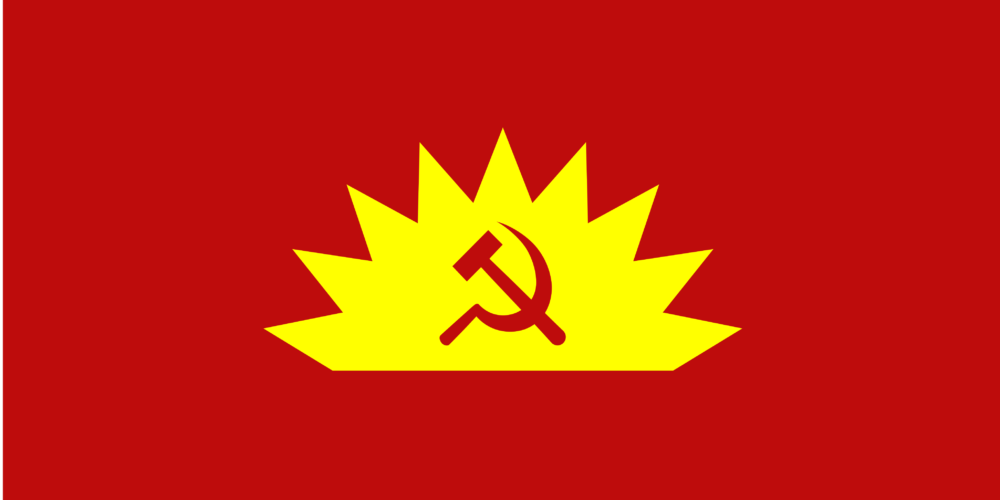Following its most recent meeting, the National Executive Committee of the Communist Party of Ireland, is calling upon the trade union movement and progressive forces to demand that the Government break with the failed approach of allowing the EU Commission to control vaccination strategy and instead to obtain additional supplies of vaccines from countries that have a proven vaccine record. The shambolic nature of the vaccination programme, and allowing the EU bureaucracy to decide where we should secure vaccines, is only the most recent example of the servile nature of the relationship of the Irish Government to the EU Commission and EU institutional power and control.
The party also calls for a more vigorous campaign by the trade union movement to protect the interests of workers as the economy begins to reopen; that workers’ health and safety are not compromised for the sake of profits, to demand a people’s stimulus to help workers to find work, retrain, and upgrade their skill, and to extend the moratorium on rent increases and evictions.
The NEC further discussed the recent violence that erupted in some unionist communities in Belfast and other areas within the Six Counties, a result of a number of processes working themselves out on the streets and certain elements attempting to stir up inter-community conflict. The source of this violence is the role of “loyalist” paramilitaries that control communities through various community projects and their role in long-standing criminal activity, including protection rackets and drug-dealing, and intimidating anyone who opposes their control.
Unionism has nothing to offer the working class in the Six Counties except division and the resulting violence. It is clear from the historical experience that these paramilitary organisations have in the past been useful tools in the hands of the British state, as demonstrated by their intimate relations with Military Intelligence. It is hard to believe that these riots are the spontaneous reaction of “disaffected teenage youths.”
What is ignored by and covered up by unionism is the fact that systemic poverty and social inequality have been used by cynical unionist establishment politicians to raise the false flag of identity politics, to cover their subservience to the needs and interests of British imperialism. It is also clear that, given the deep and long-standing links between the British state and these organisations, the state was aware of the pending organised violence and intimidation to be adopted.
That the DUP has played a role in promoting and stoking violence behind the scenes, using paramilitary elements to advance its own political strategy, is nothing new. The promotion of division within the working class and the use of sectarianism and violent repression have been the primary methods in the unionist arsenal from before and since partition.
It is no surprise either that this violence has erupted within working-class communities, which have been marginalised, impoverished and run down for decades and have been led down an economic, political, social and cultural cul-de-sac vis-à-vis unionism, wedded to British imperialism and the capitalist mode of production.
The CPI calls on all progressive forces to oppose these attempts to sow further division, which will only lead to an escalation from which there will be no victors, only victims. In all matters we need to ask who benefits from this violence, and who loses in this situation. Certainly unionism as a political ideology is attempting to use the false flag of “identity” as a threat to cover its own policies, wedded to the economic and political status quo, a system built on poverty, discrimination, poor housing and growing homelessness, increasing social inequality, collapsing public services such as health, and brutal exploitation as the rich get richer.
Considering the ubiquitous presence of British military intelligence agents, it is hardly surprising that the riots in some unionist areas should be mirrored on the other side of the “peace line.” Violence in nationalist areas has been minimal, despite the intimidation and goading of these communities by the police, including the use of dogs and water cannon.
No doubt the British state forces will use this violence and the threat of violence to ensure that its strategic interests are secured and guaranteed. In the hundred years since the establishment of the gerrymandered northern statelet, partition has failed working people. It was built upon a gerrymander and sectarianism and can only be sustained and maintained by the constant sowing of division.
In relation to Brexit and its possible implications for a move towards some form of national unitary state, the CPI once again reaffirms its long-standing policy of struggling for a united, sovereign and independent Ireland. Whether Brexit aids or impedes that process will depend on the extent to which democratic and anti-imperialist forces can be mobilised.
It is within the terrain created by the internal tension between two imperialist blocs, the EU and the British state, that we have to build and mobilise the politics and national struggles of resistance, to challenge imperial power: institutional, economic, political, and cultural.
What we are sure of is that it will be the actions of the mass of the people that will bring a united all-Ireland democracy; it is most certainly not predicated on whether or not the British state grants a border poll. Neither the British nor any imperial power have the right to set fetters on the boundaries and aspirations of the people of Ireland.






